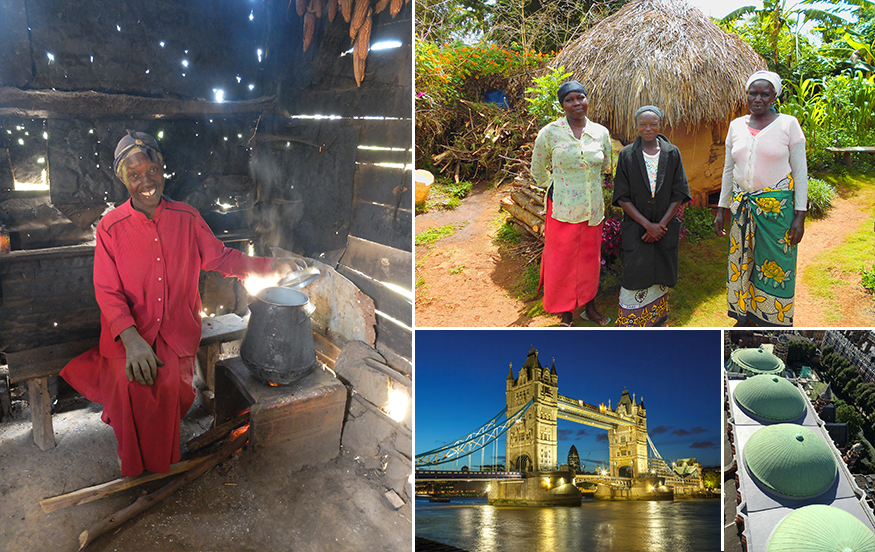With the UK government setting a target of net zero carbon emissions by 2050, procuring sustainable building and refurbishment materials has become more important than ever before.
The UK mastic asphalt sector became the first industry in the world to achieve the CarbonZero standard back in 2008. To achieve CarbonZero status, the mastic asphalt industry is effectively taxing itself in the interests of the environment. Individual companies have taken this route before but at the time, this was a world first for an entire industry.
Mastic asphalt is an ideal building material for a whole range of construction applications, both new build and refurbishment projects, where a smooth, seamless, durable surface is required. It offers total waterproofing for roofing and acts as a tough working surface in flooring and paving.
Typically capable of lasting 50-60 years, the Mastic Asphalt Council (MAC) – the trade association for the mastic asphalt sector in the UK – can demonstrate many examples where mastic asphalt has lasted in excess of 100 years such as at St Paul’s Cathedral in London.
Malcolm Grinstead, Director of MAC said: “The UK has become the first major economy in the world to pass laws to end its contribution to global warming by 2050 and although UK emissions were 44% below 1990 levels in 2018, the Committee on Climate Change has advised that the UK is not on track to meet the fourth carbon budget which covers the period 2023-27.
“The Mastic Asphalt Council represents more than 70 companies in the sector, including mastic asphalt manufacturers, specialist application contractors and associated suppliers of equipment and services, and many of our members have noted increased interest from architects and specifiers about the CarbonZero properties of mastic asphalt in light of the UK’s 2050 net zero target. We have also written to all the major political parties about the CarbonZero properties of mastic asphalt,” he added.
In use for centuries, mastic asphalt has an illustrious history as one of the most established and well proven waterproofing membrane systems currently available. Traditionally consisting of graded limestone aggregate bound together with bitumen, today’s mastic asphalt systems are now manufactured using advanced polymer modified formulations to ensure all the performance characteristics of traditional asphalt systems, with the added benefits of increased flexibility, enhanced handling and sustainability. The incorporation of modern polymers into mastic asphalt systems has helped lead to its resurgence in the construction industry.
In September this year, the International Mastic Asphalt Association (IMAA) Symposium was hosted in Cologne, Germany. Mastic asphalt specialists from all around the world united at this event and one of the most thought-provoking presentations was delivered by Mike Smith of MAC member company IKO PLC. Mike delivered a presentation focused on IKO’s carbon offset programme. Working closely with carbon management company CO2balance, IKO offsets the carbon emissions related to the tonnes of mastic asphalt that it produces and sells into the market to make the product CarbonZero.
IKO has also produced a Carbon Offset Impact Report which provides details on the social and community impacts linked to IKO Group’s carbon offsetting programme from January 2015 to December 2018, outlining positive impacts on local communities in Kenya and Uganda. To put the environmental impact of IKO’s carbon offsetting work into context, the total emissions that the company has offset are the equivalent of:
Total offset – 5,723.69 tonnes CO2
Volume in m3 = 3,183,516
Number of UK houses filled with this CO2 = 16,599
Return flights from London to New York = 2,683
Number of times driving the circumference of the earth = 674
CO2 emissions from cups of coffee = 143 million cups
In Mike’s presentation at the IMAA Symposium, he talked in detail about the Kenyan Energy Efficient Stove Project which builds energy saving cooking stoves for villages in Kenya. These brick stoves result in a 50% reduction in the need for firewood and thereby reduce the amount of carbon being emitted. In addition to carbon reduction, it also provides families with a cost and time effective method to cook with.
The reduced need for firewood helps to prevent deforestation, creating knock on benefits to the wildlife in terms of habitat and flood prevention. It is also a healthier method of cooking as it reduces in-door smoke by half. In-door smoke is a serious problem in Africa and the World Health Organisation dubbed it the ‘Kitchen Killer’, as it is responsible for two million deaths in Africa every year. The Stove Project has saved 3,147 tonnes of wood and positively impacted on 6,511 people.
In his presentation Mike also referred to the Uganda Borehole Rehabilitation Project which supplies families in Northern Uganda with fresh, clean water. As well as the natural health benefits, it means that families no longer have to boil the water, saving firewood and thereby preventing carbon emissions from being released.
Access to safe drinking water is a serious issue in Africa affecting the health and wellbeing of local communities. In addition to funding the borehole rehabilitation, the carbon credits that this project produces creates a funding mechanism to deliver a long-term maintenance programme for the boreholes. The Borehole Project has supplied 1,744,365 litres of water and saved 1,397 tonnes of wood.
Mike also made reference to several CarbonZero projects carried out in the UK, where the net carbon footprint of projects is entirely offset using internationally approved carbon credits, which means for every tonne of mastic asphalt made, IKO is helping to fund environmental and humanitarian causes.
In his presentation Mike made reference to Westminster Cathedral, the seat of the Cardinal Archbishop of Westminster and the Mother Church for Roman Catholics in England and Wales. In 2015 the existing mastic asphalt was renewed on the roof of the cathedral and during the works some 35 tonnes of mastic asphalt was installed, equating to 5.5 tonnes of CO2 offset. These same figures have been calculated for another project in Portsmouth, where mastic asphalt has been used to waterproof the Round Tower, a Grade I listed building located at the entrance to Portsmouth harbour.
IKO’s CarbonZero mastic asphalt solution has also been used to renovate Tower Bridge, one of London’s most iconic landmarks which is used by thousands of people every day. MAC member Infallible Systems installed over 400 tonnes of mastic asphalt, equating to 50.11 tonnes of CO2 offset.
A major project has also been completed at Four Squares Estate in Southwark, whereby IKO was asked by Keepmoat and Southwark Council to investigate issues relating to the existing access walkways. It was agreed that mastic asphalt would be used for the refurbishment, along with screed repairs and new expansion joints. During the works some 1,400 tonnes of mastic asphalt was applied and in terms of impact, this is the equivalent of 218.4 tonnes of CO2 offset.
At the IMAA Symposium, Mike finished his presentation by summarising that sustainability is becoming increasingly important to specifiers of roofing systems, and that the carbon neutral nature of mastic asphalt is helping the sector win contracts. Mastic asphalt has now offset thousands of tonnes of carbon dioxide and when it has reached the end of its useful life, it can be recycled.

